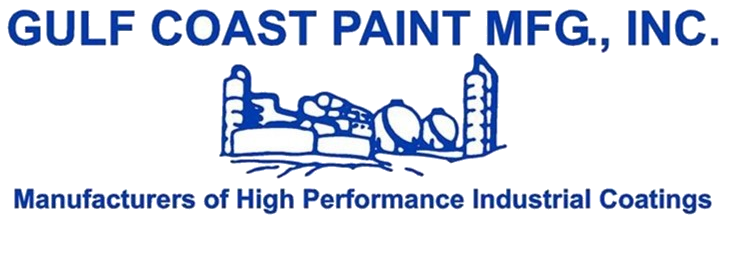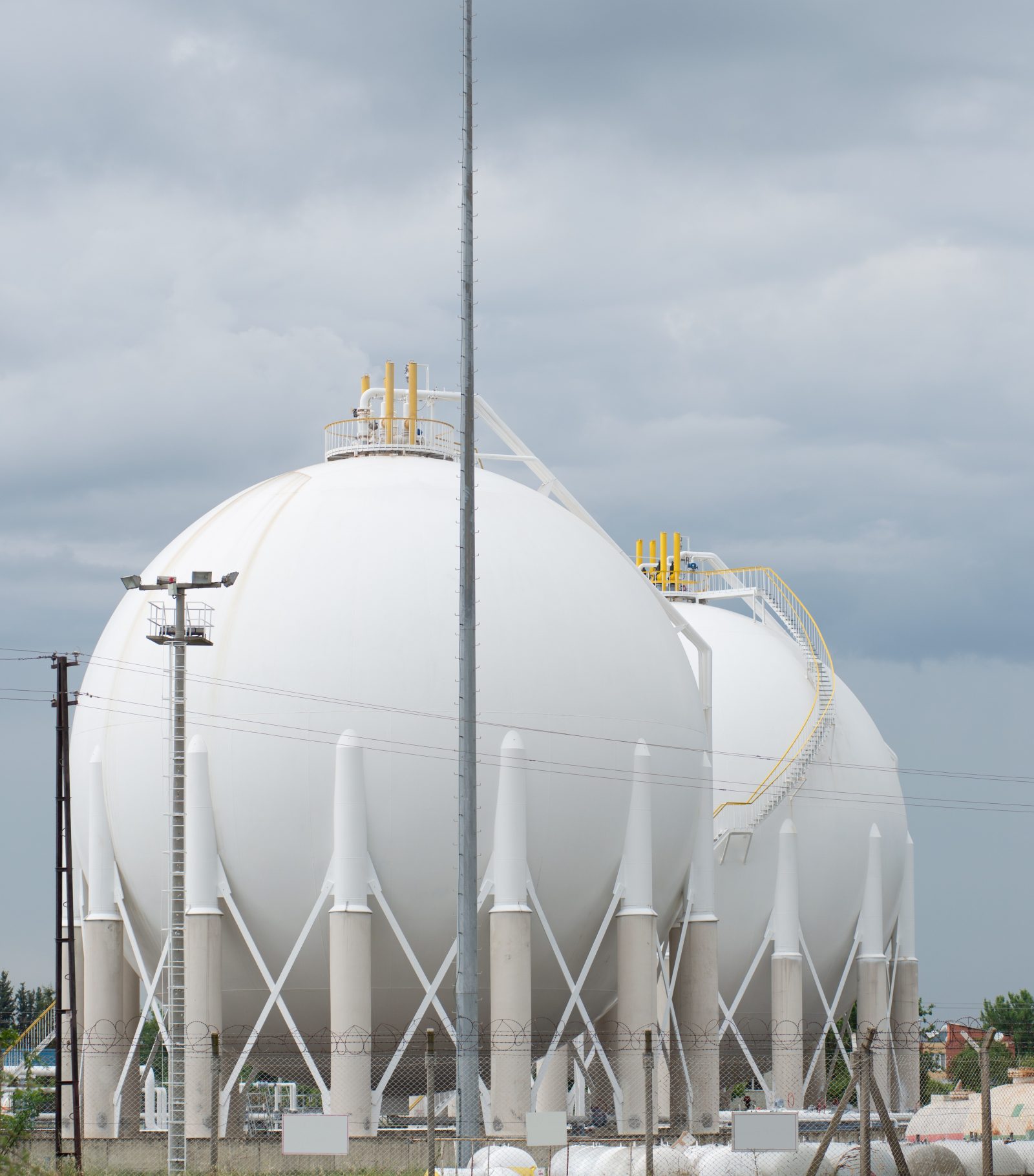
Industrial plants & facilities are often faced with the challenge of finding a protective coating system to protect their assets. What are your best options when selecting steel coatings? Whether it’s for corrosion protection, chemical protection, or even just for aesthetic reasons, it may be difficult to determine which type of industrial coating is needed to protect infrastructure. Industrial coatings help protect steel from deterioration caused by humidity, salts, and pollutants. There’s a wide range of industrial coatings that can be used to protect your asset from corrosion so let’s look a few different types:
Epoxy Steel Coatings:
Epoxy coatings are one of the most widely used steel coatings in industrial and marine markets. Epoxies are known for having excellent adhesion to steel and provide good chemical resistance. They are also often sold as “surface tolerant”, which means they will adhere well to surfaces with minimal surface preparation. Epoxies can be formulated to cure underwater or on damp surfaces which make them unique for certain applications. Epoxies are generally categorized as water based, solvent based, or solvent free (100% Solids Epoxies).
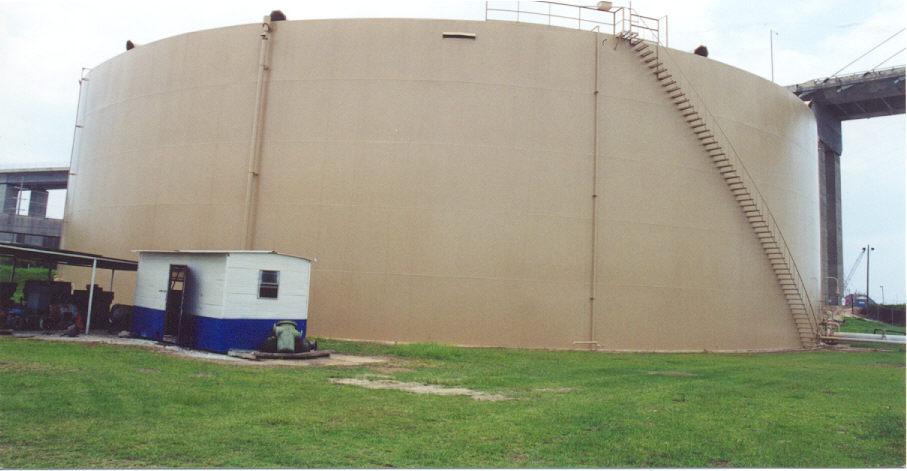
This tank was primed with a High Solids Epoxy Mastic over a SSPC-SP 6 Commercial Blast Cleaning. Product used in the photo was Gulf Coast Paints CM-15 Epoxy Mastic.
Polyurethane Steel Coatings:
Polyurethane coatings are often used as topcoats over epoxy primers on structural steel. The main reason these coatings are specified is because they have excellent gloss and color retention, as well as outstanding UV resistance. Polyurethanes are mostly used in exterior applications, although they are sometimes used interior for aesthetic reasons. Polyurethanes can also be formulated as a direct-to-metal (DTM). There are two major types of polyurethanes: Aromatic and Aliphatic. Aliphatic polyurethanes are more resistant to UV attack and typically just used in exterior applications. Aromatic polyurethanes are extremely tough and provide excellent abrasion resistance, but they do not have good color stability and will change color when exposed to UV light.
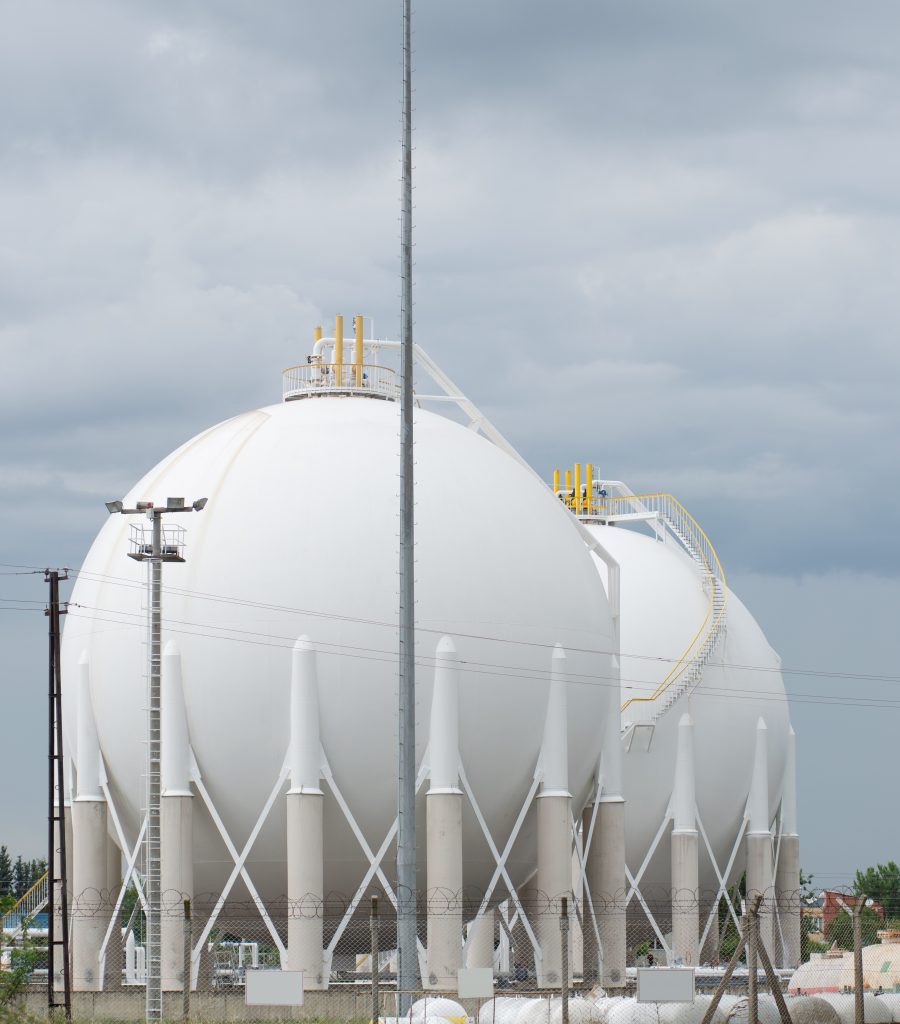
The spherical tank exterior was topcoated with an Acrylic Aliphatic Polyurethane. These polyurethanes off excellent gloss and color retention. Product used in the photo is Gulf Coast Paints CT-370 Acrylic Aliphatic Polyurethane.
Zinc Coatings:
Zinc coatings contain a high percentage of zinc dust and protect steel from corroding by providing cathodic protection. The type of zinc rich coating is defined by the binder that’s used during the manufacturing process. The two types are: Inorganic Zinc (ethyl silicate) and Organic Zinc (epoxy, polyurethane). Inorganic zinc is one of the most popular steel primers in the industrial world. Inorganic zincs are known for their high heat resistance and generally provide better galvanic protection than organic zinc. Inorganic zinc is normally spray applied at 2-3 mils DFT and no more than 5 mils DFT to avoid mud cracking. Organic zinc can usually be applied by brush, roll, or spray and can be applied over a SSPC-SP-6 Commercial Blast, while an Inorganic zinc needs to be applied over a SSPC-SP-10 Near White Blast.
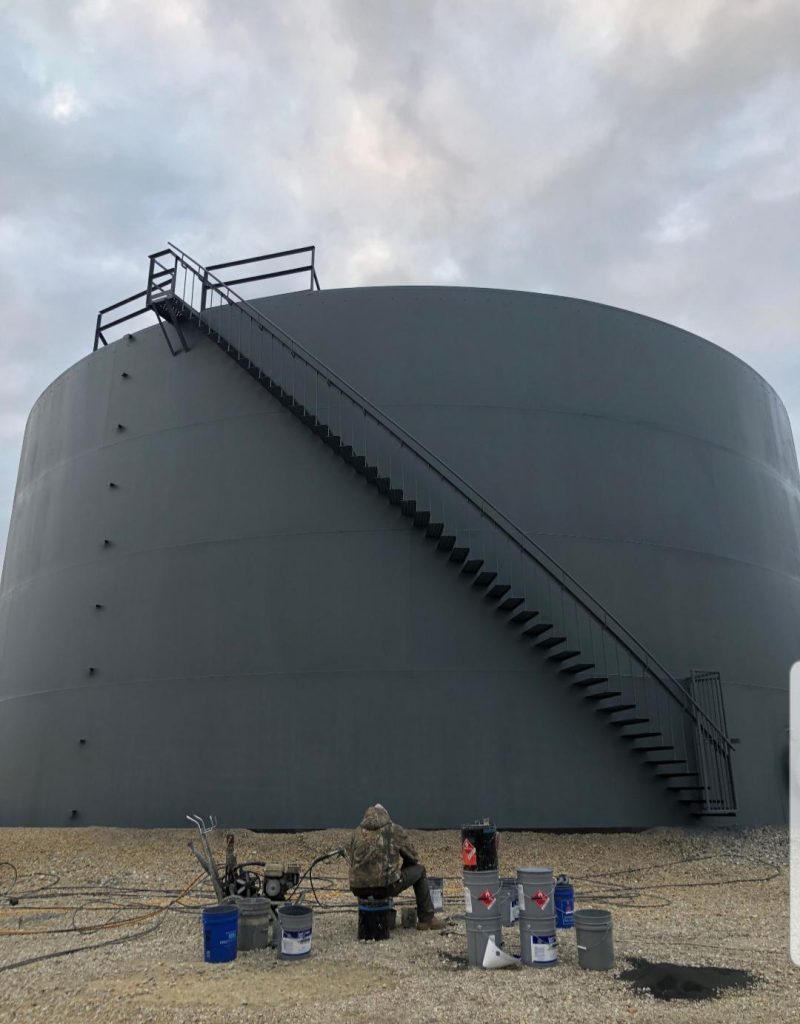
The tank was primed with a zinc rich primer. Zinc coatings provide excellent corrosion protection to structural steel. Product used in the photo is Gulf Coast Paints MCU-104 Zinc Rich Primer.
These 3 types of coatings are some of the most common that you will see in industrial markets such as: Chemical Processing, Pulp and Paper, Food & Beverage Processing, Power Generation. Mining, Petrochem, and Marine. There are several other coatings that are used in these markets such as Alkyds, Polyaspartics, Polyureas, Polysiloxanes, Vinyl Esters, to name a few.
Now that we’ve discussed some of the key coatings used, let’s take a look at the two different types of coatings systems used, which are single coat and multiple coat. Single coat systems require the applicator applies the coating very carefully because there’s a higher chance of holidays and other defects. In most cases, a multiple coat system is used in industrial and marine environments. Often times the coating system starts with either an epoxy or zinc rich coating as the primer, an intermediate coat of epoxy, and a finish coat of epoxy or polyurethane. One of the main reasons multiple coat systems are used is because certain materials do an excellent in one aspect of corrosion protection but not so well in others. In less aggressive areas such as an industrial maintenance project in a low humidity area, it’s common to see a 2 coat system applied. In more aggressive areas such as a chemical plant in a high humidity environment, it’s common to see a 3-coat system.
When it comes to finding the proper steel coatings system for your facility, Gulf Coast Paint has the experience and expertise to help find the proper coating system for the application. We can help with making recommendations and provide a coating specification for the job. Call us today at 251-964-7911 or email us info@gulfcoastpaint.com .You can also visit out product page to see our full line of industrial coatings: https://gulfcoastpaint.com/products/
